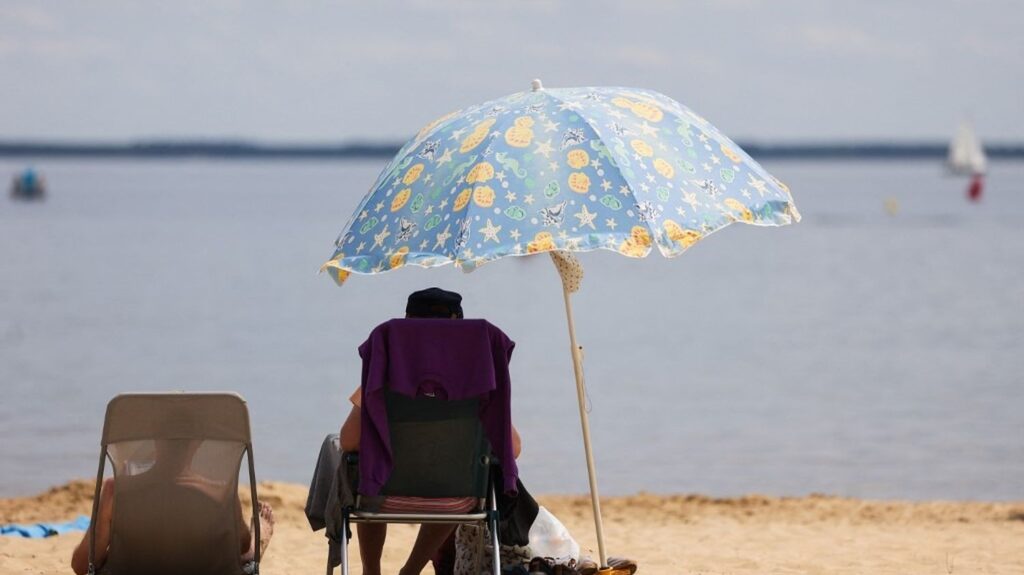/2023/07/07/64a7df4c5fe71_placeholder-36b69ec8.png)
Published
Reading time: 5min
/2025/07/22/000-33mz7xu-687f65d100e0d455480900.jpg)
According to Christophe Nguyen, specializing in the prevention of psychosocial risks, the “long holidays” allow workers to “restore” their “resources” and avoid overwork, see, burn-out.
Holidays, “It’s vital”. And it’s a professional who says it. At the time of the summer holidays, Christophe Nguyen, Labor Psychologist and President of the Human Immounte Cabinet, specializing in the prevention of psychosocial risks, explains on Franceinfo that leave is absolutely necessary for workers. And there is no guilt to have, quite the contrary. According to him, the holidays allow “Stay efficient at work”.
Franceinfo: How is it so important for workers to take holidays?
Christophe Nguyen: It is vital to be able to restore its cognitive, physical and emotional resources. Holidays are not a luxury, but a physiological and psychological necessity. They allow the brain to get out of the “survival” mode to find a state of well-being and performance. Without a frank cut, the risk of overwork and burnout increases considerably. It is therefore very important to understand that it especially allows you to remain so efficient at work. The idea is to be able to disconnect and detach yourself from work to rest and also be able to plan its social activities. It is really something that must be seen overall, we are in better mental and physical health, therefore more efficient at work and more efficient.
How much is the ideal cutout?
Good practice is first of all not to wait for the long holidays to take holidays. You have to spread them all year round with a pace that can range from every three to five weeks, also have long weekends, to be able to invest and restore its mental and physical resources. And then, you have to have a longer vacation, not necessarily too long either because we see that the profits are not exponential.
“We know that after eight days, we have a peak where we deeply restore our resources.”
Christophe Nguyenin franceinfo
Good practice is therefore a big two -week vacation and not necessarily four weeks, a month, or even more because we see that there is also the start of the school year or the boredom that can happen. It is important to go well throughout the year and to alternate with rather short and frequent rest.
And what do you advise as a type of vacation?
You don’t need the same vacation for everyone. We have to adapt a little to what is activated and requested in the context of their work, it therefore really depends on the needs of each according to the profession and the stresses on working time. For example, professions that have a strong cognitive burden, such as the profession of teaching for example, or the so -called “intellectual” professions which are very demanding of decision -making, we can feel fatigue at the cognitive level, I would rather advise less intellectually stimulating vacation and can be more physical, with hikes, walks in nature, in particular to completely disconnect from a digital point of view …
For professions with more physical solicitations or with offbeat schedules, such as building, logistics or catering professions, where it is rather physiological reserves that you have to restore, you can imagine a thalasso for example. That is to say a vacation where we find an ambitious, normal, adapted and restful rhythm of sleep, rather centered on sleep and relaxation … If you have a somewhat monotonous job on a daily basis, you can rather look for holidays with exploration and intellectual stimulation. The holidays must make sense.
However, taking a vacation is not always very well seen by employers …
Yes, I reread it to something quite cultural in France and which has still been undermined with telework, which is the question of presentism. That is to say, loyalty or investment, see the performance of an employee, is judged at the time spent in the company or the fact that it does not take off. However, I think it is an error when you see the exhaustion, burnout and disease stop rates in France. There is a small cultural change which is however at work in certain companies which understand that it is necessary to take a vacation so that people can remain successful.
It is a management problem that overall considers that it is not a source of efficiency that people can take their vacation.
Christophe Nguyenin franceinfo
I could see people, in extreme cases; A minority, which has a hard time with vacation, like superinvestite executives in their work and who did not like to take a vacation because they saw no interest in it. I think it is a very bad example and that it does not inspire the young generations at all. There are people who, indeed, find everything in their work: social ties, pleasure, intellectual stimulation, friends too … I think that you should not put all your eggs in the same basket because it is a risk to mental health and these people can be further exposed to risk of burn-out. The young generations know this well and are more aware of these issues. I believe that it is an issue of sustainable development of our economy and the labor market to say that it is important to have something other than work and that, sometimes, bored is also good.


